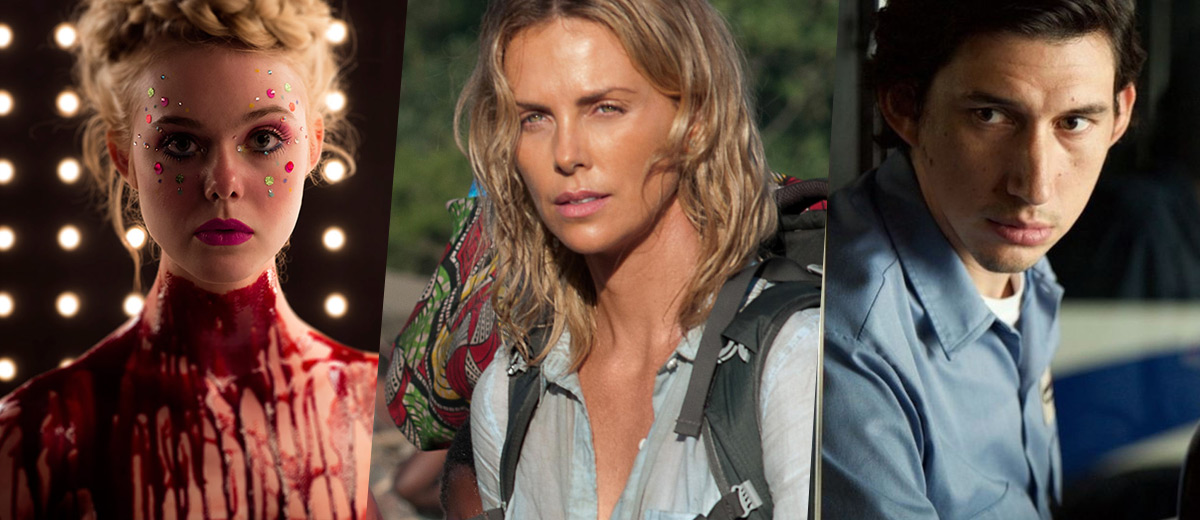 “American Honey” [Review]
“American Honey” [Review]
It might have been expected, given Andrea Arnold ‘s two previous Jury Prizes (for ” Red Road ” and ” Fish Tank “) that “American Honey” which represents such a shift-up in gear, scope and ambition, might have picked up a higher award. That was not to be, but despite a divisive reception caught between twin poles of instant adulation and immediate dismissal, ‘Honey’ is a fascinating, exhilarating film to experience. And experience really is the key word — it’s not got a great deal of sustain nor a particularly incisive philosophical or political point (although the protagonist Star, played with stunning naturalism by breakthrough Sasha Lane is explicitly from a poor, disenfranchised background) but ‘Honey’ is valuable as a prime example of the cinema of immediacy, a kind of headrush, breathless immersion into intoxicating youth. Featuring a fine turn from Shia LaBeouf — even if he does sport a mullet/braid — it’s a delicious, evocative atmospheric film that connects you to an experience of youth and freedom with visceral purity.
 “The Wailing” [Review]
“The Wailing” [Review]
If you’ve got the slightest doubt in your head about which country leads genre cinema, just watch “The Wailing” when it roars into theatres near you. Na Hong-jin follows up his noirish mind-benders ” The Chaser ” and ” The Yellow Sea ” with this furiously jam-packed story of a father trying to save his daughter from some ambiguous evil possession. The film runs like a hurricane through its two and a half hour length, never letting you feel a second of it because of how many genres it flips through – virtually every element of horror is touched upon, right down to death-by-lightning-strike – and Na’s ability to keep it all balanced is frightfully impressive. With an unforgettable physical performance by Kwak Won-do at its centre, “The Wailing” is a fingernail-seat-digging and gut-busting rollercoaster ride through Korea’s House of Terror that’ll be wailing in your head for days on end.
 “Graduation” [Review]
“Graduation” [Review]
Cristian Mungiu ‘s track record in Cannes (Palme d’Or for “4 Months, 3 Weeks and 2 Days” — which we named the best Palme winner of the century — and Best Actress for follow-up “Beyond the Hills“) is such that it was little surprising his “Graduation” did not pick up more critical heat, prior to lifting the Best Director award (shared with Olivier Assayas for “Personal Shopper”). There was perhaps a sense of it lacking the ferocity and rigor of those previous titles, but when that linear drive is replaced with such a complex, involved and engrossing evocation of endemic corruption in Romanian society, it doesn’t seem like it’s at all a compromise. The story of a man’s desire to guarantee a more promising future for his academically inclined daughter than he believes she could ever face at home, ‘Graduation’ is an intricate, ambiguous movie of enormous, ‘Godfather’-level ambition, tamed to the tight control of Mungiu’s masterful direction.
 “Neruda” [Review]
“Neruda” [Review]
There are two ways to make a historical biopic worth a damn — you either quietly improve on the existing formula, burnishing it to a new shine (see “Loving” below) or you explode the whole concept. Chilean director Pablo Larrain — one of our favorite working filmmakers — chooses the latter path for his deconstructed, semi-experimental take on a period in the life of Chilean poet, national hero, senator and Nobel Laureate Pablo Neruda. And the result is so energetic, so frenetically packed with ideas and inventive staging, that it’s really not a biopic at all. Certainly, one emerges having learned less about Neruda than the quasi-mythological hold he has over the Chilean national imagination, and the seemingly infinite variety of ways Larrain can approach the simplest, most familiar scene to make it feel entirely fresh. Featuring a career-highlight performance from Gael Garcia Bernal as the surprisingly tragic inspector on the communist poet’s trail, “Neruda” is challenging, intoxicating and quite, quite brilliant.
 “Hell or High Water” [Review]
“Hell or High Water” [Review]
David Mackenzie ‘s comfort in masculine worlds is proving to be a winning formula, even when it crosses the border. Shifting from the British jail environment in “Starred Up” to the all-American Texan plains in “Hell or High Water,” Mackenzie directs Taylor Sheridan ‘s (“Sicario“) witty and balanced screenplay with delicate deft. Whittling out memorable performances from its three central stars in Jeff Bridges, Chris Pine and Ben Foster , the western is a straight shooter in terms of narrative, with not much in the way of surprise. At least you’d think so, until the final act blindsides you with a fistful of emotional punches. The way it neatly packages its sentiment towards America’s wicked past, all the while painting a portrait of West Texas through an array of terrific minor roles, imbues the film with a thoughtful sort of melancholia that sticks with you. It doesn’t shake any new grounds, but travels through the familiar with scorchingly entertaining swagger.






so glad to see Neon Demon on the Best list!! haven’t read any reviews not even yours. can’t wait to see it!!
There’s something quite interesting in how the American critics generally say that everyone hated Dolan’s movie, but the French, Canadian, and (to some extent) British critics generally take the time to acknowledge there seems to be a divide between the English- and French-speaking worlds about his movie. #centeroftheworld
And in fact, a majority of the jury members speak/understand French: Desplechin, Golino, Mikkelsen, Nemes, Paradis, and Sutherland. It could explain how Dolan got the Grand Prize.